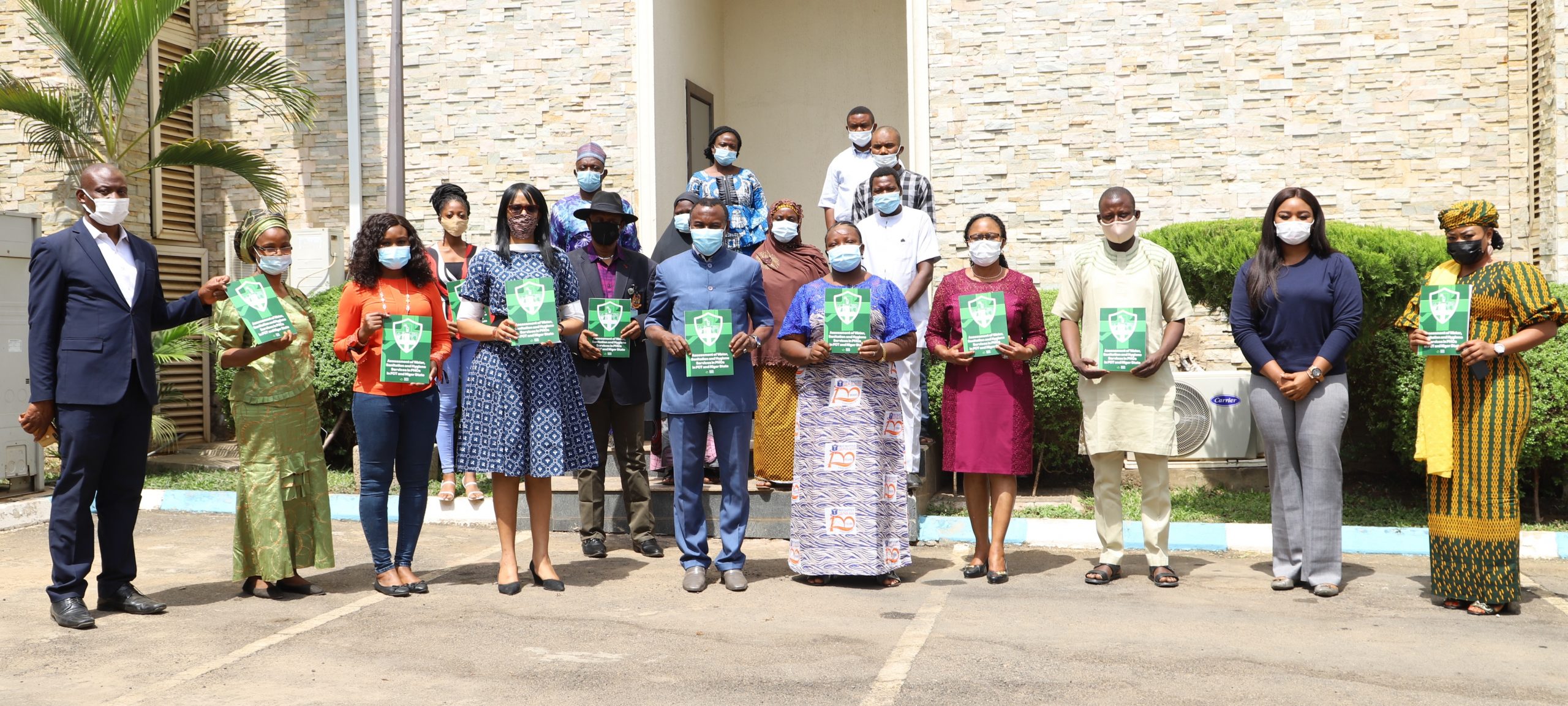04 February, 2021 | Abuja – Nigeria Health Watch presents findings from an assessment of WASH services in PHCs in the FCT and Niger State
In September 2020, Nigeria Health Watch conducted an assessment of Water, Sanitation and Hygiene (WASH) services in Primary Health Care centres (PHCs) in the FCT and Niger State to gather relevant evidence to help improve WASH in healthcare facilities in Nigeria.
The assessment evaluated the availability and equitable access to WASH services in primary healthcare centres, towards the achievement of Sustainable Development Goal 6: Clean water and sanitation. A report was a culmination of the assessment which sought to increase awareness about the need for effective WASH services at all PHCs and to reinforce the need for adherence to policies that ensure that primary healthcare facilities meet minimum standard requirements for primary health care, in line with the Federal Ministry of Health’s guidelines.
The evaluation was conducted in partnership with EpiAFRIC, in 62 PHCs using both qualitative and quantitative methods. In Niger State 50 PHCs were assessed and in the FCT 12 PHCs, across urban and rural communities. Some initial findings were that 25% of the PHCs assessed in the FCT pay for water from their budget, 58% experience interruptions in their water source and 83% do not have infection, prevention and control (IPC) protocols followed by health workers.
Speaking at the presentation of findings in Abuja, Managing Director at Nigeria Health Watch, Vivianne Ihekweazu said, “Nigeria is striving to meet SDG 6 by 2030 and one of the objectives of the assessment is to provide evidence for action to drive quality improvement in the provision of WASH services in primary health centres.”
The assessment found that an inadequate water supply in health facilities, was one of the contributing factors to the low rate of deliveries at some health facilities, as many pregnant women preferred to deliver their babies at home, where water was available. At the time of conducting the assessment, in Pandagi Health Centre of Abaji Area Council, FCT, there had been no water supply in the last year which greatly discouraged women from giving birth to their babies in the centre. Relatives of the few pregnant women who give birth at the primary health centre, had to source water from a nearby river.
“WASH is about equity and justice. Often times the people that need it the most are those that can’t provide it for themselves. They need the assistance of all relevant stakeholders to provide it for them”, Dr. Tochi Okwor, AMR & IPC Programme Coordinator at the Nigeria Centre for Disease Control emphasised.
Receiving the report, the Executive Secretary of the FCT Primary Health Care Management Board, Dr. Iwot Ndaeyo said, “Implementation of findings is dependent on political will. We appreciate the good job that Nigeria Health Watch is doing and we believe that the necessary authorities will look into the report and do the needful”.
From the assessment, it is clear that we need to improve the availability and quality of WASH services in PHCs around the country. The resultant effect of the current lapses is poor health outcomes and health-seeking behaviour of community members. The consensus at the end of the launch of the report was improving WASH services also involved improving access to wash and sanitation services in the local community. In addition, the local health authorities need to re-examine the WASH services provided at PHCs and re-equip them with necessary infrastructure to enhance their service quality, in order to achieve universal health coverage (UHC). Multi-stakeholder colloaboration that includes the government, private sectors and communities will be required in order to pave a way for Nigeria to attain SDG 6.
Read the report here: https://nhwat.ch/3rexvQe
About Nigeria Health Watch
Nigeria Health Watch is a not-for-profit organization that aims to advocate for the health of Nigerians, strengthen the capacity of health sector organisations, enlighten Nigerians on good health habits and practices and engage and support government and other partners to formulate and implement positive and effective health policies. Its dual strengths in health and communication enables it to provide solutions for communications and advocacy in the health sector.


